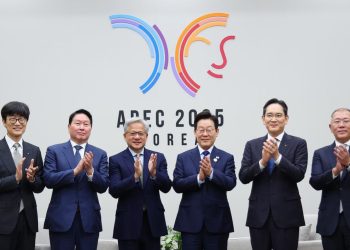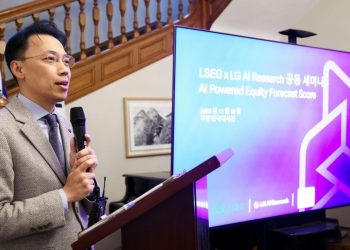South Korea’s newly appointed finance minister, Koo Yun-cheol, is expected to take the lead in driving the country’s artificial intelligence (AI) strategy under the Lee Jae Myung administration. Government officials say AI will be a central tool to boost economic growth and modernize key areas such as fiscal planning, taxation, and financial policy.
Koo, a public servant with prior roles as the nation’s top budget official and head of the Office for Government Policy Coordination, is seen as well-equipped to oversee this transformation. His appointment highlights the government’s focus on using AI to address South Korea’s long-term economic challenges, including a slowing growth rate and an aging population.
Koo Yun-cheol’s return to government comes at a time when South Korea is preparing a nationwide push to integrate AI across all sectors. As a former budget chief and minister for government policy coordination, Koo is expected to guide AI-related reforms in fiscal, financial, and industrial strategies. His leadership is seen as crucial to implementing a broad AI transformation.
Last week, the Ministry of Economy and Finance submitted a key strategy report to the presidential committee for policy planning, outlining the government’s vision for AI-powered innovation. The plan calls for comprehensive AI integration across economic, social, and technological fields. A major part of this strategy includes scaling up infrastructure investment in data centers and power systems to support the rapid development of AI technologies.
The finance ministry will take charge of crafting national-level economic and social policies that incorporate AI, while working closely with the Ministry of Science and ICT, which is responsible for enhancing the country’s AI infrastructure and advancing sovereign AI capabilities. Sector-specific roadmaps will be developed for manufacturing, services, and public administration to guide the rollout of AI applications.
The initiative will also be supported by key figures from the private sector. Bae Kyung-hoon, former head of LG AI Research, is nominated for the role of science minister, while Ha Jung-woo, former AI lead at Naver Cloud, has been appointed senior secretary for AI Future Planning. Their expertise is expected to drive stronger public-private collaboration and ensure that policy aligns with technological capabilities.
A new task force will be established under the presidential committee to coordinate AI efforts across different government branches. This group will help monitor progress, facilitate inter-agency cooperation, and support timely policy adjustments as AI technologies evolve. According to projections from the Bank of Korea, the effective adoption of AI could significantly boost productivity and GDP, while also offsetting workforce declines due to population aging.
Finance professionals are likely to see growing opportunities and increased expectations as AI becomes an integral part of government economic planning. AI-driven tools for credit risk analysis, fraud prevention, and customer engagement are expected to receive increased support. To stay competitive, professionals in the banking, insurance, and regulatory sectors may need to upskill in areas such as machine learning, predictive analytics, and automated forecasting.
A central part of the AI initiative under Minister Koo is to boost productivity and cut costs across industries, public services, and smart technologies by advancing AI capabilities and nurturing skilled talent. Koo has stressed the importance of making AI education widely accessible, noting that many still see AI as a complex or distant field. To address this, the government aims to launch aggressive, nationwide training programs to build a tech-savvy workforce prepared for AI-driven change.
The broader strategy also includes working closely with financial institutions and technology firms to create a supportive environment for innovation. This involves setting up regulatory frameworks that promote the safe and ethical use of AI while protecting consumer interests.
As AI increasingly plays a role in everything from policy decisions to business operations, finance professionals will need to stay informed, adapt quickly, and capitalize on new learning opportunities to remain competitive.







